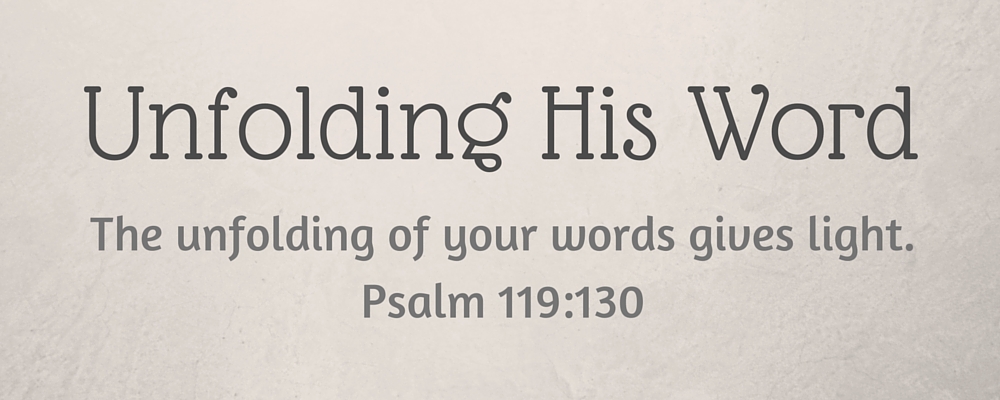But as it is, he has appeared once for all at the end of the ages to put away sin by the sacrifice of himself. Hebrews 9:26
In mathematics and philosophy, we show something to be true if it meets criteria that are both necessary and sufficient. For example, for an object to be a square, it must have four sides. But while a necessary condition is that the object have four sides, this condition is not sufficient because a rectangle also has four sides.
On the other hand, some conditions are sufficient but not always necessary. For instance, in school, a student who earns an A is guaranteed to pass the course. In other words, an A is a sufficient condition for passing the course, but it isn’t necessary because a student who earns a B or a C will also pass the course.
To prove something to be true, like the square, we sometimes need a multitude of necessary conditions that together become sufficient. That is, all conditions must be met at once for the answer to be true. In this example, a square must have four sides, all straight, all equal length, joined at the ends, lying in a plane, with four 90 degree angles, etc. If we meet all these criteria, then, and only then, are we guaranteed a square.
Necessary and sufficient.
The Levitical sacrifices were not sufficient, but they were necessary because God required them. Under the Mosaic Law, a different type of sacrifice was brought for each sin, and each time a sin was committed, a new sacrifice had to be offered. Though the priests offered many different sacrifices to atone for the many different sins, still, no sacrifice was ever sufficient. The priests themselves were sinful and could never offer complete redemption.
Jesus offered one sacrifice for all our sin. Rather than many, repeated sacrifices, His was once for all. Rather than different requirements to cover the guilt of different sins, His sacrifice paid for all sins.
Necessary, But Not Sufficient
Some treat Christ as necessary, but not sufficient. That is, they believe that faith in Christ is one of many conditions to being truly saved. For them, salvation requires “Christ plus…” Maybe Christ plus baptism, Christ plus joining a church, or Christ plus a specific style of music.
As a believer, I can fall into this pattern myself when I let legalism creep into my thinking. When a judgmental attitude sneaks in and I start thinking that a follower of Christ must speak, dress, or act a certain way, then I’m introducing “Christ plus….” We may believe that we are saved by grace alone, but then live as though we are saved by grace plus good works.
Paul warned the church of this very attitude in Galatians 3:2-3:
Let me ask you only this: Did you receive the Spirit by works of the law or by hearing with faith? Are you so foolish? Having begun by the Spirit, are you now being perfected by the flesh?
The Galatian church was giving in to the foolishness of believing that Christ was not enough.
Sufficient but Not Necessary
Others see Christ as sufficient but not necessary. They may believe that Christianity is fine for you, but not for them. A popular philosophy today is that all attempts to gain forgiveness are equally acceptable—like students who believe that any exam grade will pass the course.
This attitude may seem to apply to those outside of Christianity only, but I’m not so sure. When I leave Christ at church on Sunday and live my weekdays on my own terms, I’m effectively living as though Christ is not necessary. Or when I turn to Christ in crisis, but then figure I’ll worry about the smaller day-to-day decisions, I’m once again living as though Christ is sufficient but not really necessary.
Consider this familiar passage from Matthew 6:27-30:
And which of you by being anxious can add a single hour to his span of life? And why are you anxious about clothing? Consider the lilies of the field, how they grow: they neither toil nor spin, yet I tell you, even Solomon in all is glory was not arrayed like one of these. But if God so clothes the grass of the field, which today is alive and tomorrow is thrown into the oven, will he not much more clothe you, O you of little faith?
So much anxiety can be lifted when we recognize that in our daily hurdles and the mundane tasks of life, Christ is indeed necessary.
Jesus, Once for All
The Bible teaches that blood must be shed for the forgiveness of sins.
Death is the necessary condition. However, when the sacrifices were goats and bulls, the necessary condition had to be met repeatedly, and still was never enough. This was the old way—the old covenant. But now through Christ, God offers us a better way: a single sacrifice. Having met all the criteria, Jesus’ sacrifice—once for all—guarantees our salvation.
Not only is Christ necessary and sufficient for our salvation, He’s necessary and sufficient for our day-to-day lives. We discount His sufficiency when we hold ourselves and others to religious rules that suggest that Christ is not enough. We discount His necessity when we ignore Him and take matters into our own hands.
The promise in Hebrews 9:26 above—once for all—is not a faraway theological notion. It is a promise that whoever you are and whatever you’re facing, Christ is enough.
Thank you to Unlocking the Bible and the ministry of Pastor Colin Smith for welcoming me as a guest writer. This article first appeared on the Unlocking the Bible blog on April 6, 2015. Reprinted by permission.
*Adapted from Enduring Faith: An 8-Week Devotional Study of the Book of Hebrews published by Lighthouse Publishing of the Carolinas, ©2014, and used by permission.

